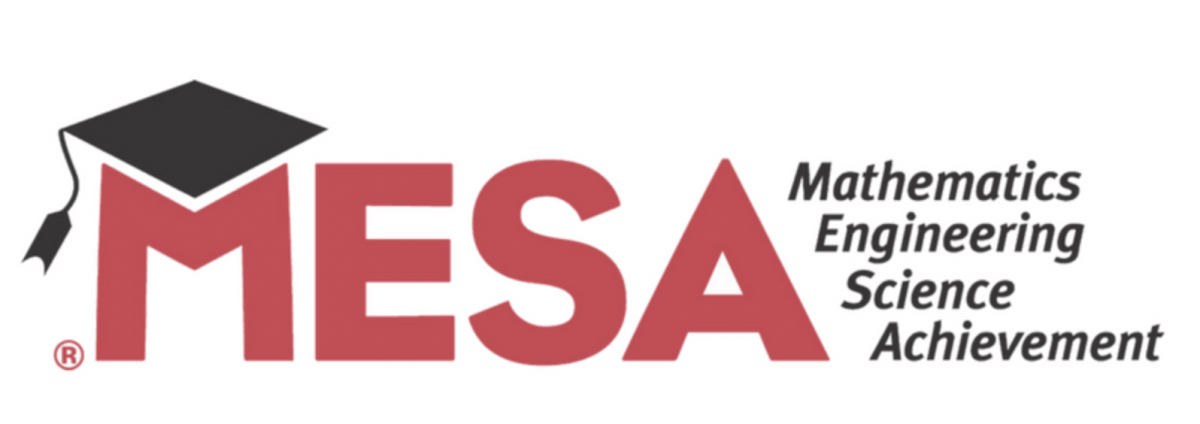On a quiet Thursday morning, in the MESA study center of Rodda Hall South 122, students can be found working on their own, focused on their studies at computers and tables with a mentor by their side.
MESA, which stands for Math, Engineering, Science Achievement, is a transfer program for community college students. Born out of the Civil Rights movement, the MESA program started out in Oakland Technical High School, according to Lorena Jauregui, the coordinator of the City College MESA program. Eventually, MESA would be established in community colleges everywhere, starting with Sacramento City, American River and Cosumnes community colleges. MESA offers a substantial amount of resources and services to aid underrepresented students in STEM fields and help students transfer to four-year universities.
This year, the MESA program celebrates its 50th anniversary. City College’s MESA program will celebrate at its annual reception at the end of the spring semester.
Jauregui explains that the core of MESA has remained the same over the years.
“The foundation of MESA hasn’t really changed much over the 50 years,” says Jauregui. “We’re still trying to help diversify the STEM fields. We still provide similar resources like tutoring, emotional support, exposure to industry and even strong career preparation.”
The program is funded by the state of California, so there are certain criteria that students must meet, such as being a first-generation college student, be eligible for financial aid, and plan to transfer to a four-year university, according to Jauregui.
Jauregui explains that although there are specific requirements for the program, there is some flexibility in those requirements and encourages people who are interested to apply.
There are many resources available to MESA students, including a study center in RHS 122, a textbook and equipment library, and calculator checkouts.
Ashley Vang, biology major, says that there are a number of things that make MESA beneficial.
“I think it’s probably all the resources that they hand to you or give to you,” says Vang. “There’s mentors and tutors, and there’s computers and printing that’s really helpful. And also we have cohorts that are geared toward your major and helping you further advance in getting to where you want to be.”
Jauregui adds that the MESA program is also affiliated with two clubs on campus: Diversity in Medicine Club and the Multicultural Engineering Coalition. According to Jauregui, the Multicultural Engineering Coalition acts as an umbrella for some chapters of professional engineering organizations, such as SHPE (Society of Hispanic Professional Engineers), NSBE (National Society of Black Engineers) and SWE (Society of Women Engineers).
Angel Vasquez, computer engineering major, says that the best thing about MESA is the relationships students make within the program.
“I guess there is always the distinguishable difference between having classmates and then having people that you really feel like you not only study with, but you learn and grow together with,” says Vasquez.
Within the MESA program, students are offered opportunities to apply for scholarships and internships and to attend conferences. City College MESA students have interned at NASA and SMUD. In an upcoming pre-med/pre-health conference at Stanford University Feb.8, students will have the opportunity to meet with representatives from different medical schools and learn how to be competitive applicants for medical schools. In addition, in March students will attend the Women in Engineering Conference in San Jose.
One of the most valuable things MESA offers for Vasquez is having peers who are also mentors.
“It means a lot to me to be able to interact with people who are older than me and further along in their studies,” says Vasquez, “to be able to gauge like, ‘Oh, this is what I should look out for when I get there, too.’”
Manuel Serrano, a mentor for the MESA program, helps facilitate the pre-health cohort sessions and educates students about health careers. He explains that when students realize that people like him have struggled but continue to accomplish their goals, it can inspire them to continue to work on theirs.
“I feel like a lot of students look for that support,” Serrano says. “I think a lot of students look for role models, and to be able to see someone that looks like them kind of gives them that hope to continue doing what they’re doing.”
The students appreciate the resources and services that MESA offers, but according to Vang, the best part is the environment.
“Everyone’s really friendly and nice here,” says Vang. “They’ll give you advice about everything or anything you need, and it doesn’t have to be just about school. It can be about personal matters as well.”





























